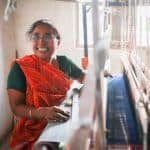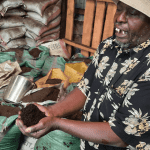Food Security During – And After – COVID-19: A Short and Long-Term Strategy for Funding Agribusiness
Over the past 18 months, Grassroots Capital Management PBC – an asset manager of impact investment vehicles – had been preparing to launch a fund and affiliated technical assistance facility that would improve access to capital and technology for smallholder farmers in Central America and the Caribbean. Our goal was to enhance these farmers’ food security, and build their resilience to climate change in a region vulnerable to both climate and food supply disruptions.
And then COVID-19 happened.
The landscape changed overnight. Smallholder farmers were now approaching planting season with customers locked down, supply chains disrupted, funding gone, and the future ever more uncertain. So as the pervasive and far-reaching effects of the pandemic took hold, we shifted gears. Though the original goals of our fund remain, it was clear that we also needed to provide immediate support to these farmers and the businesses that serve them. To reduce the likelihood that the depredations of the health and economic crises are further exacerbated by food insecurity, we know these farmers need inputs to plant and ways to get food to customers. So we’re combining Grassroots’ own resources with commitments from long-standing partners to extend short-term, low-cost credit to agribusinesses providing essential products and services. Our goals are now to help mitigate the negative effects of the pandemic on the food security of vulnerable communities, while supporting these companies’ continued climate change resilience and gender equity efforts.
COVID-19 and Food Insecurity in Latin America
Food insecurity is already a critical concern in Latin America. For the countries we are targeting in Central America and the Caribbean, over 10% of the population is undernourished, per World Bank Data. The UN’s World Food Programme estimates that COVID-19 will increase severe food insecurity by 130 million more people globally, and this will hit low-income, informal and rural workers in the poorest countries the hardest. Countries in Latin America and the Caribbean were already vulnerable due to political unrest, violence, economic and gender disparities, and climate risks. These challenges have lessened job opportunities, increased unemployment, reduced agriculture productivity, and threatened livelihoods and food security across the region.
These multiple afflictions are compounded by declining interest in the region from mission-driven investors. For the past several years, the GIIN’s Annual Impact Investor Survey has registered a downward trend in impact investors investing in Latin America and the Caribbean (from 40% in 2018 to 34% in 2019). Many survey respondents also signaled their intention to continue this pullback: 13% plan to decrease allocations to the region – the largest regional decrease in the survey. For climate investment in particular, investors are staying local, with 76% of total climate finance sourced and invested in the investor’s home country. Going forward, it is likely this local investment trend will only increase in other sectors as well, given the lockdowns and travel restrictions brought on by COVID-19, which are driving the need for increased local investment all over the world. In food and agriculture, a focus on local, sustainable food systems will be all the more necessary as cross-border food supply chains are disrupted.
In light of these issues, many agribusinesses in the region are in dire, immediate need of low-cost money to continue operations. These businesses play a crucial role in providing seed and fertilizer for planting, equipment and data management to strengthen localized supply chains and reduce food waste, and e-commerce platforms to bring produce to end-consumers that desperately need it. To support them, we will make credit immediately available, as well as financing safety improvements and working capital to maintain payrolls, retain staff, and ensure the timely harvest and marketing of perishables.
Investing in a Climate Smart and Equitable Recovery
Our short-term loans with concessional interest rates are intended to get money to these companies as quickly as possible in response to the pandemic. In these uncertain times, farmers are investing in the basics – like seeds, fertilizer and livestock feed – and are wary of investing in new technologies. Yet there are new technologies that can immediately improve processes and productivity: Many innovative companies are providing satellite imagery, remote sensing, improvements to soil health, and other agriculture technology and climate smart practices. These products and services enable smallholders to maintain and even increase yields, evaluate and improve sustainability, boost profitability and reduce greenhouse gas emissions. But these companies have also been hit hard by the pandemic. By providing emergency credit to producer cooperatives and agribusinesses serving farmers, we can help stabilize the businesses that are providing technology and climate-smart inputs, and successfully transition to a more stable future when we can pivot to medium-term financing for these companies. This emergency financing will also help Grassroots foster relationships that will build a pipeline and refine our sense of the market for longer-term investments once recovery takes hold.
All of these loans will focus on companies that build food security and climate resilience while also ensuring an equitable distribution of risks and profits, so smallholder farmers and producers get their fair share. Recognizing that COVID-19, like most crises, will have a more detrimental effect on women, we’ll give preference to companies with a gender focus – those that are run by women, promote female ownership and empowerment of female farmers, and improve access to and usage of technology by female farmers. While we are aiming to boost the recovery immediately, we are also investing for a more equitable and climate-smart world long after the COVID-19 pandemic has passed.
Many development institutions, investment funds and governments are exploring ways to provide support to businesses and communities in the face of the pandemic. Our investments – while small – have the ability to respond quickly and with a minimal administrative burden. Given the restrictions on travel and the need for urgency, we have drawn on our 20 years of investing in the region to design a process for our U.S. and Costa Rica-based team to review and assess company data remotely and distribute funds quickly, relying on our experience and our in-region contacts. Due diligence on several companies is already underway, and we are currently seeking loan applications from other interested agribusinesses. We welcome collaborators, partners and interested companies to join us. For more information, please visit our website and contact us here.
Anna Kanze is a Managing Director of Grassroots Capital Management.
Photo courtesy of sasint.
- Categories
- Agriculture, Coronavirus



